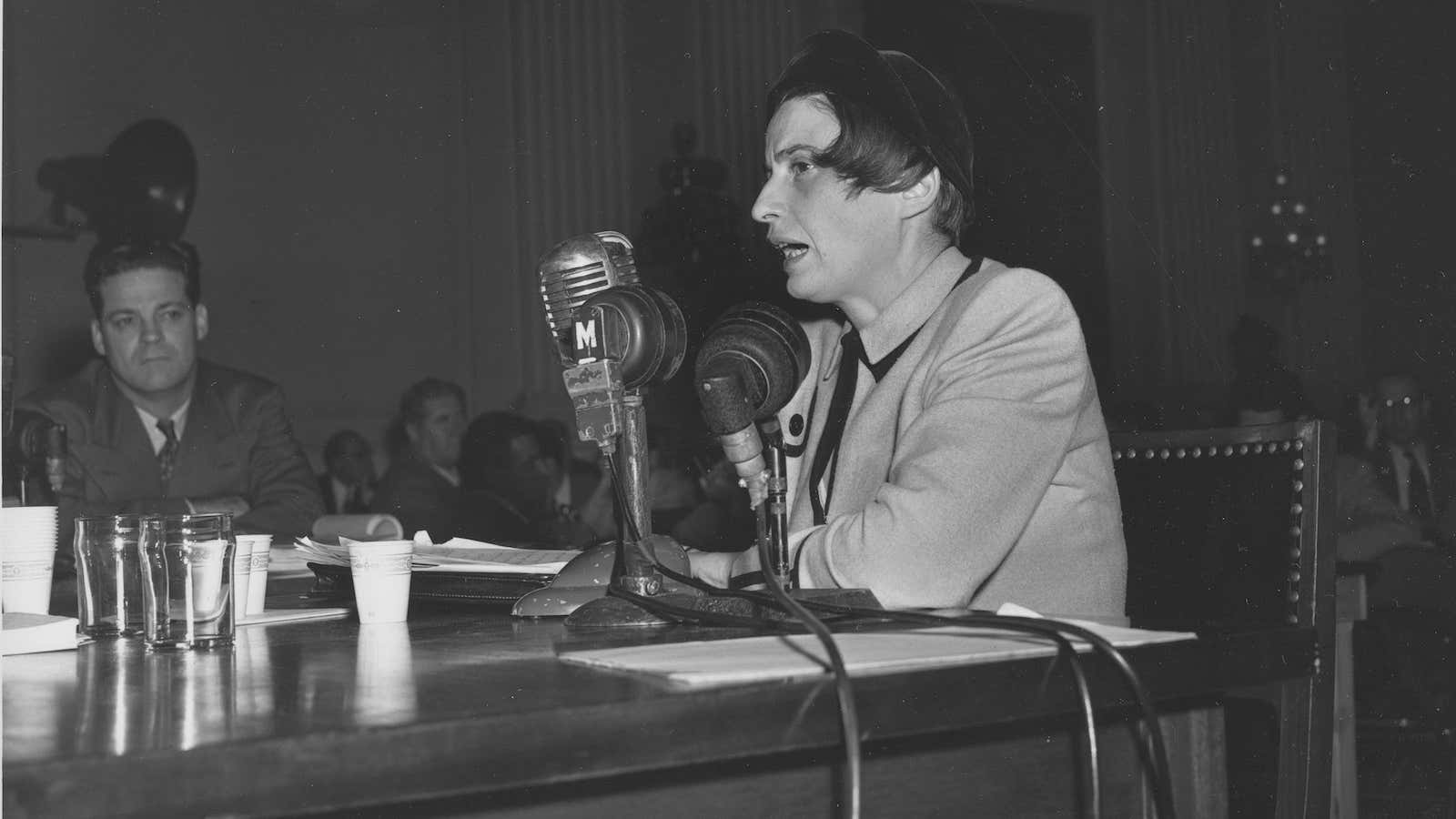US president Donald Trump loves Ayn Rand; her 1943 novel The Fountainhead is one of only three novels he’s ever mentioned liking. Rand is also credited for inspiring many other Republicans’ political careers, and the Russian-American novelist has long enjoyed steady worship—however misguided—from the American right.
Now, what’s sparked so much fascination among US conservatives is making its way into classrooms across the pond. This year, Ayn Rand’s works are appearing for the first time in A-Level Politics, a curriculum taught in secondary and pre-university schools in the UK.
British teens who plan to attend university typically take A-Level (officially known as “the General Certificate of Education Advanced Level”) courses in various subjects from ages 16 to 18, and then sit for examinations whose results are used by many schools as application assessments. While the most popular A-Level classes are in broad subjects such as literature and mathematics, the politics course is a favorite for students aspiring to go into business or government.
Adding Rand to the course’s required reading list means that many of the UK’s future leaders in those fields will now be exposed to Rand’s singular, and often controversial, philosophy known as objectivism. In the 1930s and 40s, Rand built up the idea of individualist morality—an idea that sets up selfishness as a virtue, and puts the rights of the individual at the center of the moral and political principles she believed should be embodied in society’s laws and institutions. Rand believed people should be free to pursue their own happiness, and government had a minimal role to play in society; it’s not hard to see why conservative Americans feel such kinship with the novelist.
A-level students in the UK will now be called upon to know and understand the core tenets of Rand’s philosophy, along with those of other conservative thinkers like Thomas Hobbes and Edmund Burke. (The A-Level politics course also includes the study of liberalists like John Locke and John Stuart Mill, socialists like Karl Marx and Friedrich Engels, feminists like Simone de Beauvoir, and more.)
“Students will get to grapple with a diverse worldview and build up their own respective intellectual muscles through this new curriculum,” says Yaron Brook, chairman of the nonprofit group The Ayn Rand Institute. The group has been pushing for Rand’s incorporation into A-Level curriculums for some time—but given the renewed attention on Rand following the US’s latest presidential election, the timing of the British government’s decision to include Rand’s works in secondary education doesn’t seem quite coincidence.
